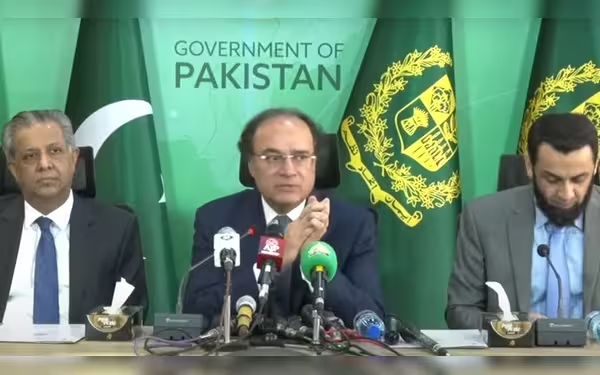Thursday, July 4, 2024 06:09 PM
Pakistani government initiates significant pension reforms
- Pension reforms to control expenses and extend retirement age
- Dedicated committee led by finance minister to spearhead reforms
- State Bank of Pakistan to determine policy rate decisions
 Image Credits: brecorder
Image Credits: brecorderThe Pakistani government is set to introduce significant pension reforms as part of its strategy to implement structural changes ahead of finalizing a new agreement with the IMF. These reforms will impact various sectors and involve controlling expenses, extending retirement age, and forming a dedicated committee led by the finance minister.
The Pakistani government is gearing up to introduce significant pension reforms as part of its broader strategy to implement structural changes ahead of finalizing a new agreement with the International Monetary Fund (IMF). These reforms are set to encompass various measures such as controlling pension expenses, extending the retirement age, and earmarking a substantial amount of Rs801 billion for superannuation allowances and pensions in the upcoming fiscal year.
The comprehensive pension reforms are slated to be rolled out across different sectors, necessitating the enactment of legislation that will impact civil servants, armed forces, judicial bodies, and executive entities. To spearhead this initiative, a dedicated committee led by the finance minister has been established to formulate recommendations for the impending reforms.
Recent diplomatic engagements, including the visit of a Saudi delegation to Pakistan, have been viewed positively, indicating a conducive environment for discussions and collaborations. The imminent arrival of an IMF mission is expected to delve into critical dialogues concerning structural reforms, encompassing areas such as enhancing the tax-to-GDP ratio, implementing reforms in the energy sector, privatizing State-Owned Enterprises (SOEs), and curbing non-development expenditures.
With a focus on revitalizing the economy through private sector support and the adoption of the Public-Private Partnership (PPP) model, the government is poised to navigate through the challenges and opportunities presented by the upcoming IMF mission. Discussions during the mission are also anticipated to touch upon the Extended Fund Facility (EFF) and climate finance, with a specific emphasis on driving benefits for Pakistan.
Furthermore, the State Bank of Pakistan will play a pivotal role in determining policy rate decisions, with potential rate cuts on the horizon as inflationary pressures show signs of abating. As the government steers towards implementing crucial reforms and fostering economic growth, the landscape of Pakistan's financial and policy frameworks is poised for significant transformations in the near future.













